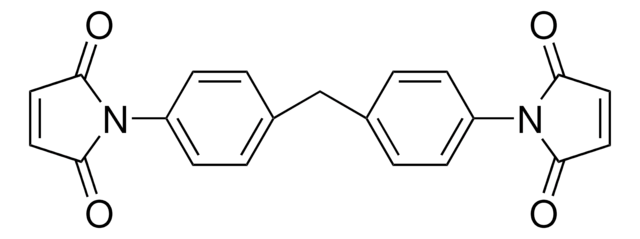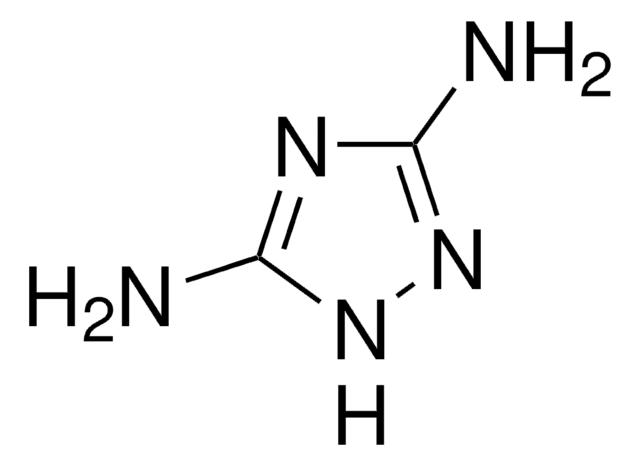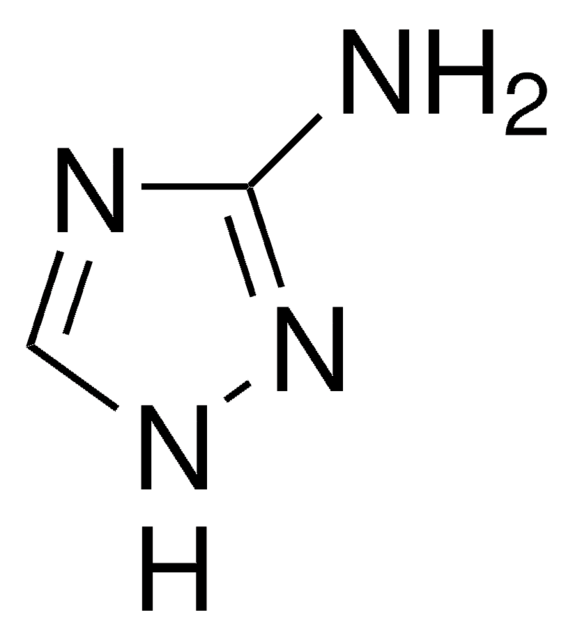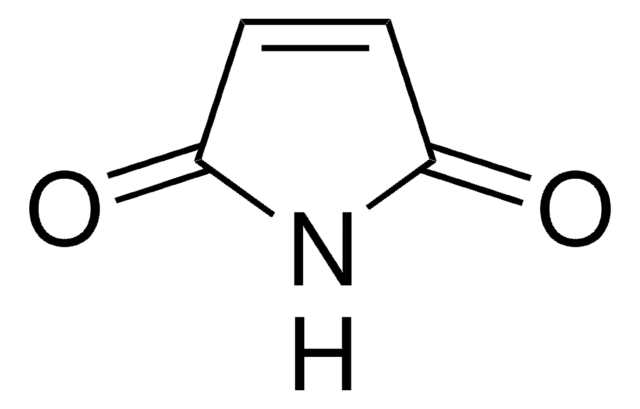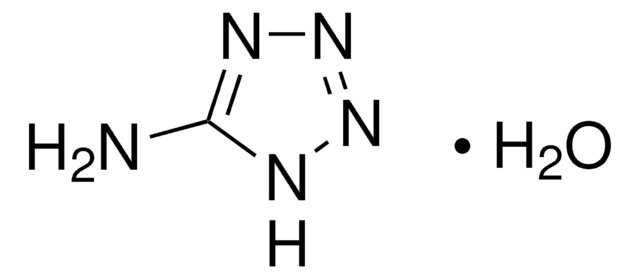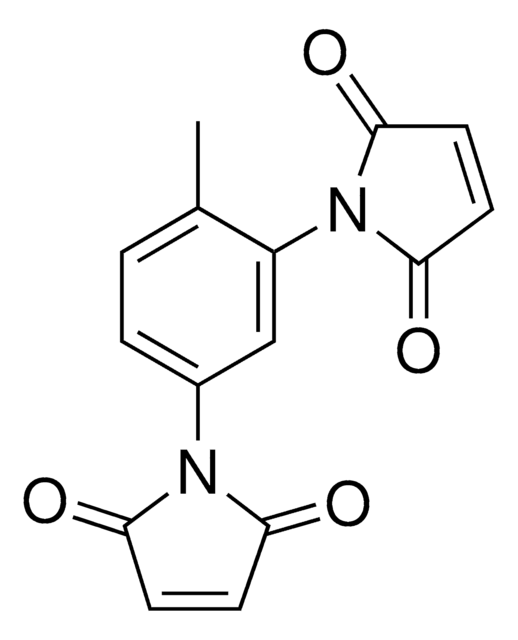Wichtige Dokumente
803588
BM(PEG)2 (1,8-bismaleimido-diethyleneglycol)
Synonym(e):
1,2-Bis(2-maleimidoethoxy)ethane, 1,8-Bis(maleimido)-3,6-dioxaoctane
About This Item
Empfohlene Produkte
Assay
≥90%
Form
powder
Mol-Gew.
308.29
Eignung der Reaktion
reagent type: cross-linking reagent
Lagerbedingungen
desiccated
Löslichkeit
water: soluble
Versandbedingung
ambient
Lagertemp.
2-8°C
SMILES String
O=C(C=CC1=O)N1CCOCCOCCN2C(C=CC2=O)=O
InChI
1S/C14H16N2O6/c17-11-1-2-12(18)15(11)5-7-21-9-10-22-8-6-16-13(19)3-4-14(16)20/h1-4H,5-10H2
InChIKey
FERLGYOHRKHQJP-UHFFFAOYSA-N
Allgemeine Beschreibung
Leistungsmerkmale und Vorteile
- Reactive groups: maleimide (both ends)
- Reactive towards: sulfhydryl groups
- Long, pegylated, sulfhydryl-to-sulfhydryl crosslinkers, composed of maleimide groups and 2-unit polyethylene glycol spacer arm
- PEG spacers provide unique advantages, including enhanced solubility, increased stability, reduced tendency toward aggregation and reduced immunogenicity
- Pure compounds with defined structure and molecular weight, ensuring reproducible protein-modification effects
- Ideal for small molecule or peptide conjugations
Vorsicht
Signalwort
Warning
H-Sätze
Gefahreneinstufungen
Eye Irrit. 2 - Skin Irrit. 2 - STOT SE 3
Zielorgane
Respiratory system
Lagerklassenschlüssel
11 - Combustible Solids
WGK
WGK 3
Flammpunkt (°F)
Not applicable
Flammpunkt (°C)
Not applicable
Hier finden Sie alle aktuellen Versionen:
Analysenzertifikate (COA)
Leider sind derzeit keine COAs für dieses Produkt online verfügbar.
Wenn Sie Hilfe benötigen, wenden Sie sich bitte an Kundensupport
Besitzen Sie dieses Produkt bereits?
In der Dokumentenbibliothek finden Sie die Dokumentation zu den Produkten, die Sie kürzlich erworben haben.
Kunden haben sich ebenfalls angesehen
Unser Team von Wissenschaftlern verfügt über Erfahrung in allen Forschungsbereichen einschließlich Life Science, Materialwissenschaften, chemischer Synthese, Chromatographie, Analytik und vielen mehr..
Setzen Sie sich mit dem technischen Dienst in Verbindung.